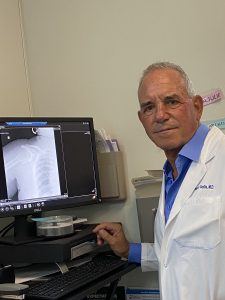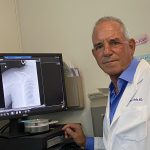Community physicians are doing their best to ride out the COVID-19 pandemic and keep their businesses viable while also keeping their staff and patients safe. The continuing need for enhanced safety precautions and lasting declines in patient volumes have taken a toll, both in terms of revenue losses and increasing workloads. The only option is to keep moving forward in hopes that things will get back to normal soon, says Norman Gaylis, MD, a community rheumatologist in Aventura, Fla.
Following up on his July interview related to the financial effects of the pandemic, Dr. Gaylis spoke to The Rheumatologist (TR) again about how his practice is faring as the pandemic drags on.
TR: Over the summer, you were concerned about keeping your practice financially viable. What do things look like for you now?
Dr. Gaylis: Since then, we’ve definitely come back to a more normal patient flow. But it’s still probably off about 20–25% because patients are very apprehensive about coming into the office.
We’re still trying to protect all patients and staff by being proactive with body temperature measurements, social distancing and rapid testing to reduce the risk of COVID exposure and have seemingly managed to do so to this point. We presented an abstract at ACR Convergence 2020 to show our results.
Financially, I’m wondering if we’ll ever get any more help from the Paycheck Protection Program. This pandemic has taken a significant economic hold on businesses, as well as families, so having further support for the practice is critical.
But the reality is, we can’t make up what we lost. I’m projecting that our revenues are going to be down somewhere in the region of 30–35% by the end of the year.
TR: In July, you began implementing furlough days for staff. How did it go?
Dr. Gaylis: Dealing with the staffing was—quite honestly—very difficult. I basically asked everybody to take off one day a week and [accept] a 20% reduction in salary. But after one month, I realized it wasn’t going to work. Everybody in this practice is a link in the chain; so when we took a link out, it became less productive and more costly.
The staff is working now pretty much for the same salaries they were prior to the pandemic. The people who have taken the brunt of the financial burden are the physicians, the providers. My thinking was the highest salary people should take a reduction in salary, because we can probably deal with it, as much as it’s not very pleasant.




